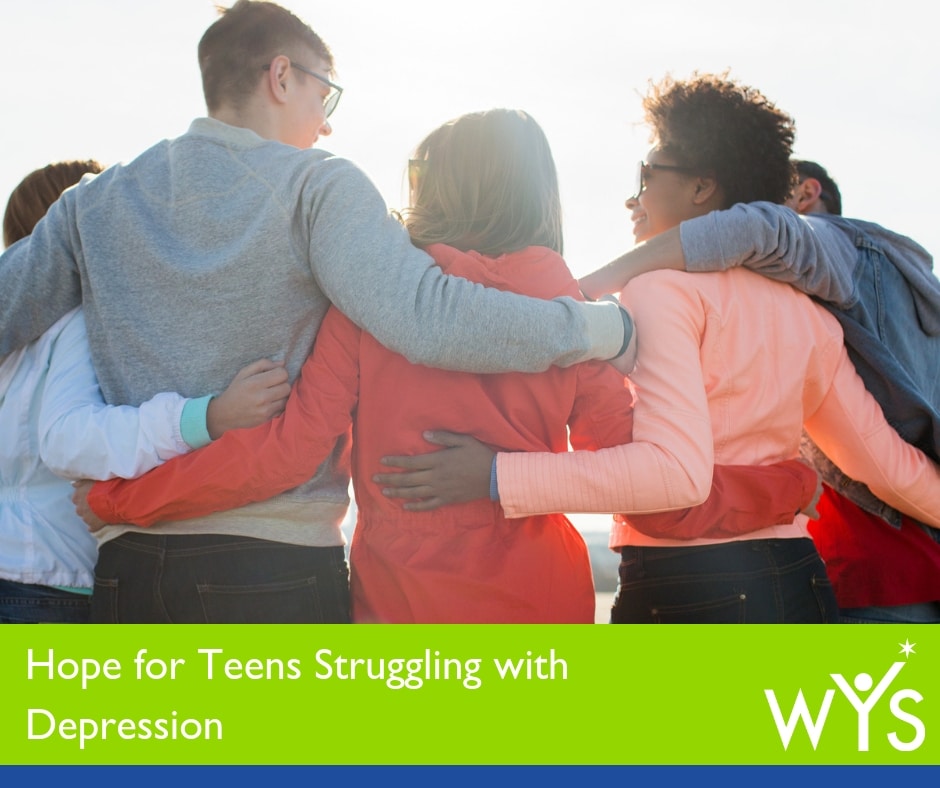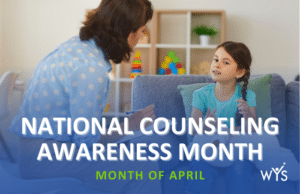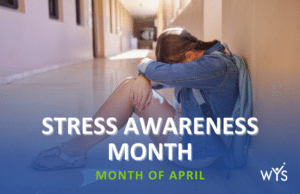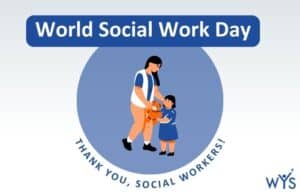
Hope for Teens Struggling with Depression
Depression in adolescents is more than sadness or moodiness. It is a complex mental health condition that requires compassionate medical care. At Western Youth Services, we support teens and families through the complexities of living with a mental illness.
What is depression?
Everyone feels sad at some point in their life. Depression is different. It can be characterized by the persistent and excessive presence of worry, sadness, irritability or unwanted/intruding thoughts. The condition, which can often occur in tandem with anxiety, may present as irrational worry, withdrawal, isolation, disinterest in activities and family/friends. It may also include changes in appearance, irritability or moodiness. Some experience a decrease in energy, hopelessness, restlessness, or other persistent physical symptoms (e.g. headaches, pain, and digestive disorders) that do not respond to other physical health treatment. Depression is a leading cause of suicidal ideation.
Rae’s story is an intimate look into one girl’s process of discovering, embracing, and integrating her depression into her life. This helped her access hope and purpose for the future.
What causes depression?
According to the National Alliance on Mental Health (NAMI), depression may be caused by several factors, including but not limited to:
- Major life changes
- Genetics
- Adverse Childhood Experiences and trauma
- Brain structure
- Drug and alcohol abuse
- Other Medical conditions
Code Words for I’m Depressed

For some adolescents, sharing how they are feeling or what they are experiencing is difficult. They may try to express how they are struggling by saying other things. The Huffington Post recently shared 25 Things People Said That Were Actually Code For ‘I’m Depressed’… from The Mighty mental health community. The following are a few examples:
- “I don’t feel well.”
- “I’m not doing well today.”
- “I’m just tired.”
- “I need to go someplace new or I want to travel.”
- “I’m surviving.”
- “I am hanging in there.”
- “I’m so exhausted.”
- “You don’t understand, no one understands.”
- “I can’t go to class.”
- “Others are going through much worse.”
Supporting friends with depression
The isolating feeling of depression can make it hard for some adolescents to ask for help. They may be willing to speak to their friends about their depression instead of their parents or caregivers. For teens who want to support their friends who have depression or other mental health conditions, NAMI recommends the following:
- Avoid saying things like “you’ll get over it,” “toughen up” or “you’re fine”
- Tell your friend that having a mental health condition does not change the way you feel about them
- Your friend may feel alone; check in regularly and include your friend in your plans
- Learn more about mental health conditions
- Encourage your friend it gets better; help and support are available
- Reach out to a trusted adult (parent, teacher, coach, religious leaders) and share with them your concerns for your friend
Help Teens Struggling with Depression
For caring adults who want to help the struggling teenagers in their life, knowing the common warning signs and being empathetic and compassionate can help. Having honest conversations and asking direct questions when we notice changes in behaviors and appearances can make a difference. If you suspect that you or someone you love might suffer from depression, answer the questions here, print out the results, and share them with your health care professional.
Reach out for professional mental health services
If you are in the Orange County, California area, contact a mental health professional at Western Youth Services. The Substance Abuse and Mental Health Services Administration (SAMHSA) provides a National Helpline by calling 1-800-662-HELP (4357) or TTY: 1-800-487-4889. It is a confidential, free, 24-hour-a-day, 365-day-a-year, information service provided in English and Spanish. It is for individuals and family members facing mental and/or substance use disorders. This service provides referrals to local treatment facilities, support groups, and community-based organizations. Callers can also order free publications and other information.
Suicide is never a solution. It is an irreversible choice to a temporary problem. There is help. If you are struggling with thoughts of suicide or know someone who is, talk to a trusted adult, or call the National Suicide Prevention Life Line at 1-800-273 TALK (8255). You may also reach them by texting “START” to 741741. If you believe that you or a loved one is currently at high-risk, call 911 or immediately transport them to a hospital to receive care.
There is help for teens struggling with depression. Join Western Youth Services in sharing hope and healing with them.

Lorry Leigh Belhumeur, Ph.D.
Chief Executive Officer
Western Youth Services






